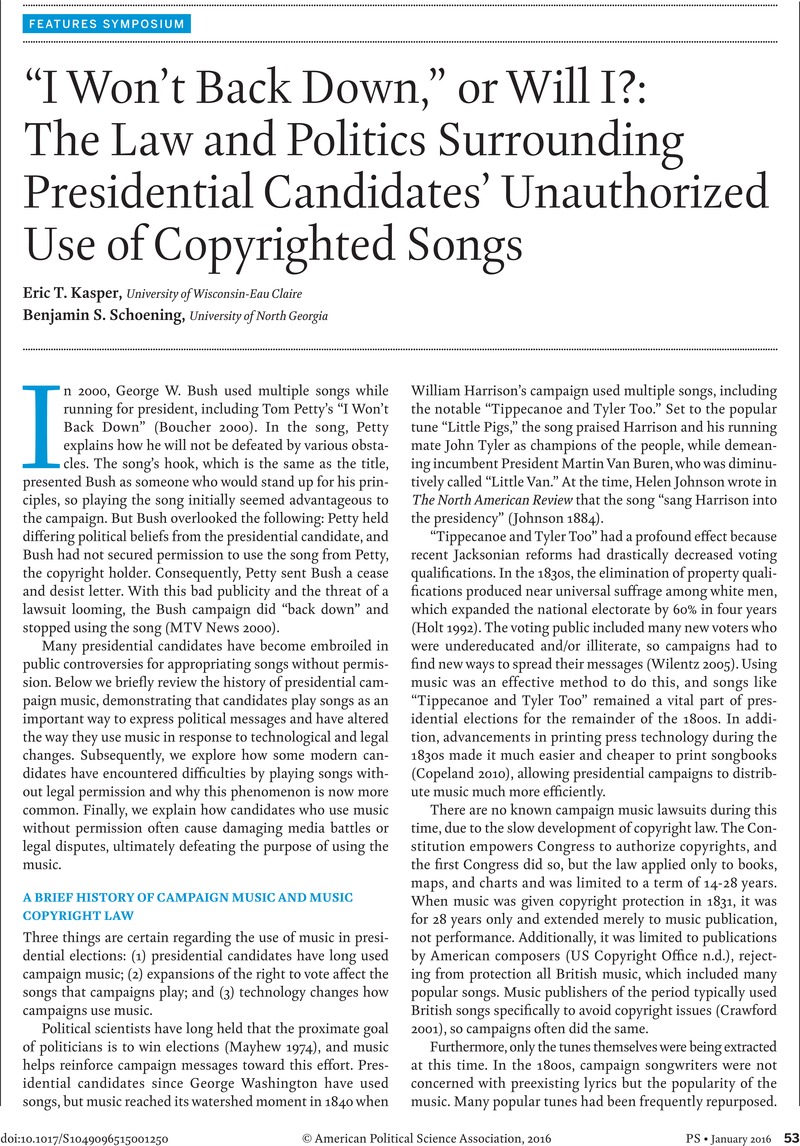Crossref Citations
This article has been cited by the following publications. This list is generated based on data provided by Crossref.
Quevedo-Redondo, Raquel
Rebolledo, Marta
and
Navarro-Sierra, Nuria
2023.
Music as Soft Power: The Electoral Use of Spotify.
Media and Communication,
Vol. 11,
Issue. 2,
Ahmad Sulaiman, Nafisah
2024.
The effect of political songs on choice of candidate, political ideology, and party loyalty among young Nigerians.
The Journal of International Communication,
p.
1.



